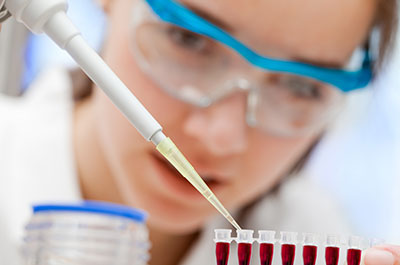Health Science Degrees
Career summary: Medical Scientists
Average Salary$88,790 National Average, Source: Bureau of Labor Statistics |
Career OutlookGood 8% job growth by 2028, which is slightly faster than average |
Earn a degree in health science from an accredited college
Overview

Why would I want a health science degree?
Medical scientists conduct research aimed at improving overall human health. They often use clinical trials and other investigative methods to reach their findings.
Job Description
What does a medical scientist do?
Medical scientists typically do the following:
- Conduct studies that investigate human diseases and methods of preventive care and treatment of diseases
- Develop instruments for medical applications
- Prepare and analyze medical samples and data to investigate causes and treatment of toxicity, pathogens, or chronic diseases
- Standardize drug potency, doses, and methods to allow for the mass manufacturing and distribution of drugs and medicinal compounds
- Work with health departments, industry personnel, and physicians to develop programs that improve health outcomes
- Apply for funding from government agencies and private funding sources, by writing research grant proposals
- Follow procedures to avoid contamination and maintain safety
Salary
How much does a medical scientist make?
The median annual wage for medical scientists was $88,790 in May 2019. The median wage is the wage at which half the workers in an occupation earned that amount and half earned less. The lowest 10 percent earned less than $49,020, and the top 10 percent earned more than $159,680.
Career Outlook
How popular are health science jobs?
Employment of medical scientists is projected to grow 8 percent between 2018 and 2028, faster than the average for all occupations.
An increased reliance on pharmaceuticals, greater affluence that allows for more spending on medicineâalong with a larger and aging population, and a greater understanding of biological processes are all factors that are expected to increase demand for medical scientists. In addition, new discoveries should open frontiers in research that will require the services of medical scientists.
Employment of medical scientists should grow, as a result of expanded research related to illnesses such as AIDS, Alzheimer’s disease, and cancer. Research into treatment problems, such as antibiotic resistance, also should spur growth. Moreover, higher population density and the increasing frequency of international travel will aid the spread of existing diseases and possibly give rise to new ones. Medical scientists will continue to be needed, because they contribute to the development of treatments and medicines that improve human health.
Career Path
How do I become a medical scientist?
Medical scientists typically need a Ph.D. from an accredited postsecondary institution. Some medical scientists get a medical degree instead of a Ph.D., but prefer doing research to practicing as a physician. It is helpful for medical scientists to have both a Ph.D. and a medical degree.
Students planning careers as medical scientists typically pursue a bachelor’s degree in biology, chemistry, or a related field. Undergraduate students benefit from taking a broad range of classes including life and physical sciences, mathematics, and disciplines that focus on developing communication skills. The importance of grant writing and publishing research findings makes writing skills essential.
Salary and career outlook data provided by the U.S. Bureau of Labor Statistics.
Health Science Schools (14)

|
Request Info > | |

|
Request Info > | |

|
Request Info > | |

|
Online | Request Info > |

|
Online | Request Info > |

|
Online | Request Info > |

|
Request Info > | |

|
Request Info > | |

|
Online | Request Info > |

|
Request Info > |
...Please wait... more schools are loading...
